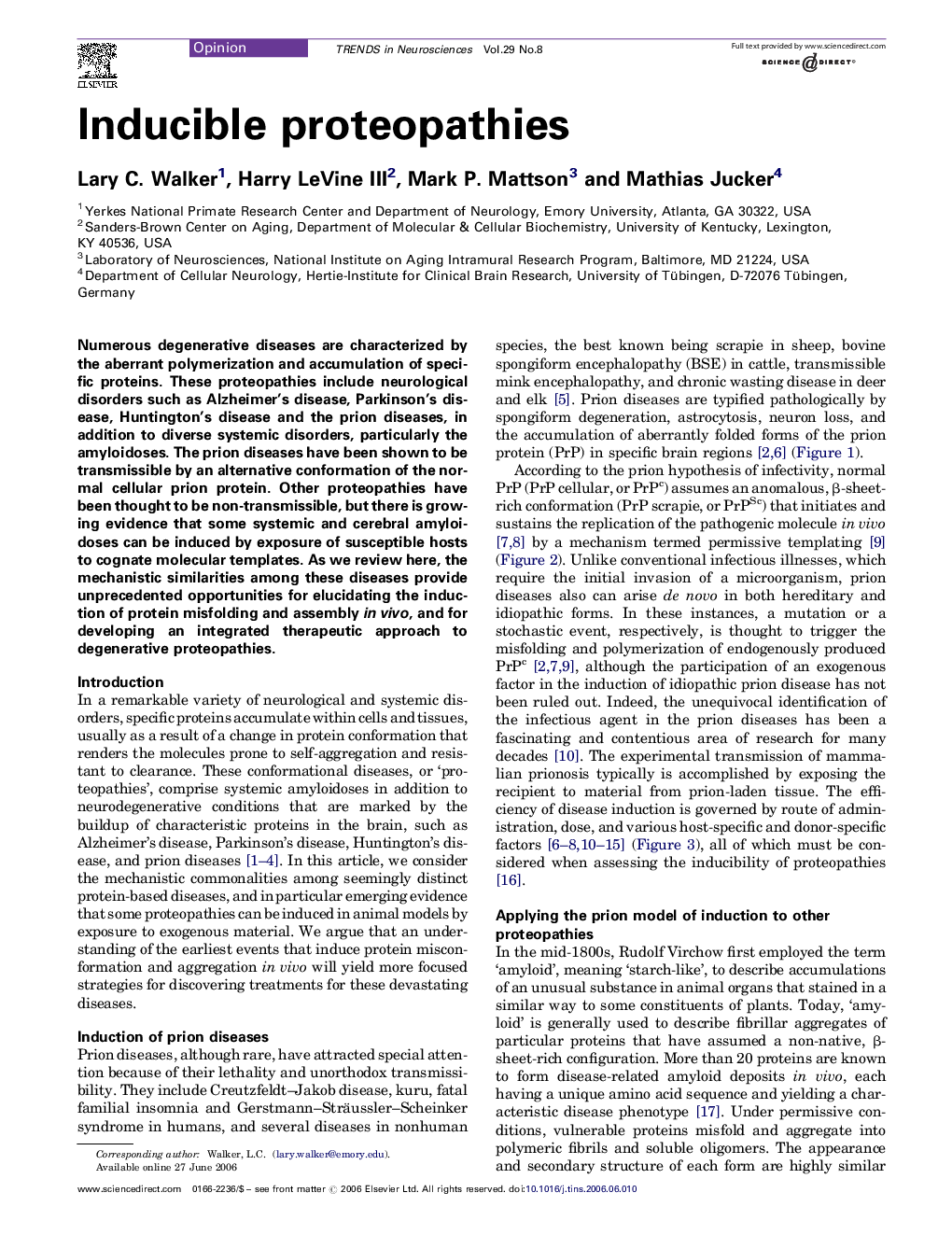| Article ID | Journal | Published Year | Pages | File Type |
|---|---|---|---|---|
| 4355037 | Trends in Neurosciences | 2006 | 6 Pages |
Numerous degenerative diseases are characterized by the aberrant polymerization and accumulation of specific proteins. These proteopathies include neurological disorders such as Alzheimer's disease, Parkinson's disease, Huntington's disease and the prion diseases, in addition to diverse systemic disorders, particularly the amyloidoses. The prion diseases have been shown to be transmissible by an alternative conformation of the normal cellular prion protein. Other proteopathies have been thought to be non-transmissible, but there is growing evidence that some systemic and cerebral amyloidoses can be induced by exposure of susceptible hosts to cognate molecular templates. As we review here, the mechanistic similarities among these diseases provide unprecedented opportunities for elucidating the induction of protein misfolding and assembly in vivo, and for developing an integrated therapeutic approach to degenerative proteopathies.
